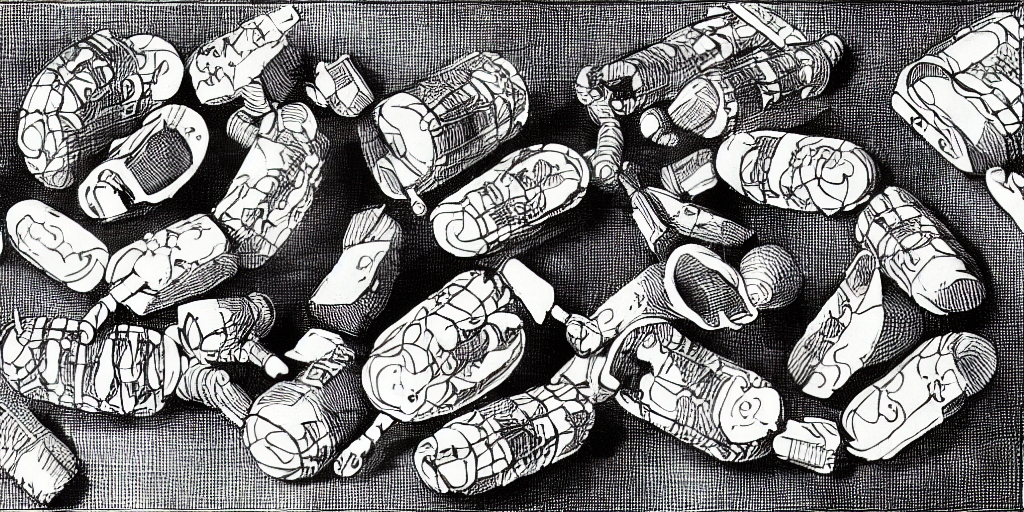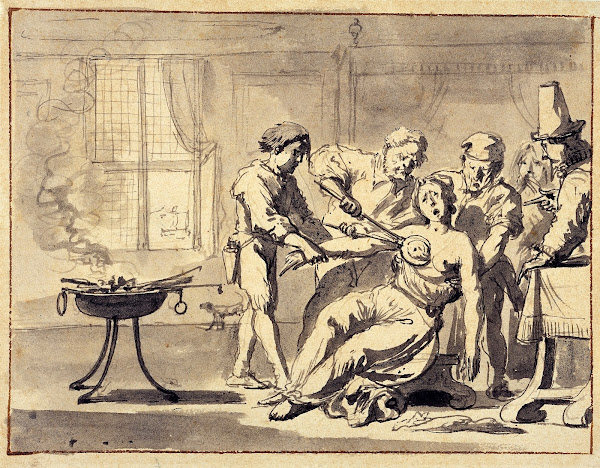What is a Military Coup (coup d'état): A comprehensive look at political overthrows
A military coup, or coup d'état, happens when a group within a country's military uses their power and force to overthrow the current government. This is usually an illegal and sudden action, often involving violence.
Think of it as if a school had a principal, but then some of the teachers decided they didn't like how the principal was running things. So, they use their influence and authority to kick out the principal and take over the school themselves. This would be kind of like a military coup, but in a government context instead of a school one.
In a military coup, the group leading the coup often claims they're doing it for the good of the country, but the reality is more complex and can result in instability, conflict, and often does not benefit the ordinary people.
Why do Coup d'états happen?
Coup d'états happen when a group within a country - usually a faction of the military, but sometimes a political group or other faction - decides to illegally and forcefully overthrow the government. The reasons behind such a decision can vary greatly and are often complex, but they usually involve some combination of the following factors:
- Political Power: Some coups are motivated by the desire to seize political power. This can be due to dissatisfaction with the current leadership, or it could be driven by the personal ambitions of those leading the coup.
- Social and Economic Instability: Coups can also occur in times of social and economic instability, such as during a severe economic downturn or in the midst of widespread civil unrest. In these situations, the group leading the coup may feel that the current government is incapable of restoring stability and that they are the ones who must step in.
- Ideological Differences: Sometimes, coups are driven by ideological differences. The group leading the coup may disagree with the policies or ideologies of the current government and decide to take matters into their own hands.
- Corruption: Perception or evidence of corruption within the existing government can also trigger a coup. This can cause a loss of faith in the current leadership and make a coup seem like a necessary step to bring about change.
- Foreign Influence: On occasion, foreign powers might have a hand in supporting or even orchestrating a coup to advance their own interests, such as installing a more friendly government.
- Internal Dynamics of the Military: The military's loyalty, its internal dynamics, and relationship with the state can also be a factor. If there are divisions within the military or between the military and the state, these can contribute to the likelihood of a coup.
What is the goal of a coup d'état
The primary goal of a coup d'état, or simply a coup, is to overthrow the existing government and seize power. However, the specific objectives can vary widely depending on the circumstances and the individuals or groups involved. Here are some common goals:
- Change of Leadership: The most immediate goal of a coup is typically to remove the current leadership from power. This might involve the arrest or exile of the current leader, and the installation of a new leader or governing body.
- Change of Regime: Coups often aim to change not just the leader, but the entire regime or form of government. For example, a coup might seek to replace a democratic government with a military dictatorship, or vice versa.
- Policy Change: The coup leaders might be motivated by a desire for policy changes that the current government is unwilling or unable to implement. This could involve economic policies, foreign policies, or any other area of government action.
- Power Consolidation: In some cases, a coup might aim to consolidate power in the hands of a particular group or individual. This might involve purges of rival factions within the government or military.
- Preservation of the Status Quo: In some cases, coups are launched in response to perceived threats to the existing social or political order. The coup leaders might aim to preserve the status quo by removing a government that is seen as too radical or disruptive.
It's important to note that while these might be the intended goals of those launching a coup, the actual outcomes can be quite unpredictable, and often include violence, civil unrest, and long-term political instability.
Important military coups in recent history
- The 1953 Iranian coup d'état: This coup was organized by the United States and the United Kingdom to overthrow Iran's elected Prime Minister, Mohammad Mosaddegh. This was in response to Mosaddegh's nationalization of the Iranian oil industry, which was previously controlled largely by the UK-based Anglo-Iranian Oil Company.
- The 1961 South Korean coup: General Park Chung-hee led a coup that overthrew the democratic government, marking the beginning of his 18-year authoritarian rule. Park implemented several economic reforms that sparked rapid economic development but was criticized for human rights abuses.
- The 1969 Libyan coup: The Libyan coup was led by Muammar Gaddafi, who overthrew King Idris. Gaddafi ruled Libya for over 40 years until he was overthrown and killed in the 2011 Libyan Civil War.
- The 1973 Chilean coup d'état: The Chilean military, backed by the United States, overthrew democratically elected socialist President Salvador Allende. General Augusto Pinochet took power, leading a military junta that ruled until 1990.
- The 1980 Turkish coup d'état: The Turkish military took control of the country, citing law and order issues and internal conflicts as justification. The military leadership implemented martial law and executed several military trials.
- The 1991 coup attempt in the Soviet Union: This was an attempt by a group of members of the Soviet Union's government to take control of the country from Soviet President Mikhail Gorbachev. The coup failed, but it significantly destabilized the Soviet Union and contributed to its dissolution later that year.
- The 1999 Pakistani coup d'état: This coup was led by General Pervez Musharraf, who ousted Prime Minister Nawaz Sharif. Musharraf declared himself Chief Executive, then later President, and his rule lasted until 2008.
- The 2013 Egyptian coup d'état: The Egyptian military removed President Mohamed Morsi from power following protests against his rule. This led to the establishment of an interim government.
- The 2021 January 6 United States Capitol attack: On the 6th of January, 2021, after U.S. President Donald Trump lost the 2020 presidential election, a crowd of his followers assaulted the U.S. Capitol Building in Washington, D.C. Their aim was to obstruct a joint congressional session that was set to count the electoral college votes, a process necessary to confirm the election win of President-elect Joe Biden, in an effort to keep Trump in office.
- The 2021 Myanmar coup d'état: On February 1, 2021, the Tatmadaw (Myanmar's military) seized control from the civilian government led by Aung San Suu Kyi, following allegations of election fraud in the November 2020 general election.
-
The 2023 Russia Military coup: Yevgeny Prigozhin, the head of the Wagner Group, a mercenary army fighting in Ukraine alongside Moscow’s official military forces has declared war against the Russian ministry of defense, claiming that Russia’s war in Ukraine was all the result of a giant plot by defense bureaucrats to mislead Russian President Vladimir Putin into a pointless conflict.
- This event was new and developing as of this publication.
Different types of coup d'états
Not all coup d'états are by the military. While military coups are the most common, a coup can be executed by different sectors of society, such as political factions, civilian populations, or external powers. Here are the most common types:
- Military Coups: These are the most well-known types of coups and they occur when a faction within the nation's armed forces overthrow the sitting government.
- Palace Coups: These occur within the existing government structure, often involving high-ranking politicians, bureaucrats, or even family members in a monarchy. The term "palace" refers metaphorically to the centers of government or power, not necessarily a royal palace.
- Civilian Coups: These are less common, but they can happen. These coups occur when civilians or non-military factions manage to overthrow the government.
- Coup by Invitation: This type of coup happens when political leaders invite the military to topple the government. This might occur when a political leader feels threatened and believes the military can stabilize the situation.
- Foreign Coups: These coups occur when external powers intervene to overthrow a nation's government. This could involve direct military intervention or indirect support for a coup attempt, such as providing financial, logistical, or moral support to the coup plotters.
- Self-Coups or "Autogolpe": These happen when a nation's leader, who came to power legally, significantly expands their own power, often by declaring a state of emergency, suspending civil courts or the nation's constitution.
- Bloodless Coup: A bloodless coup is one in which power is seized without the use of violence. This can occur through negotiation, threat of force, or other non-violent means. However, just because a coup is "bloodless" does not mean it is peaceful or without subsequent conflict or repression.
- Veto Coup: A veto coup is a type of coup in which the military steps in to veto mass participation and social mobilization to protect the existing social order from "popular challenges." It essentially occurs when the military intervenes to prevent a perceived threat to the current system.
What is a Putsch
"Putsch" is a term of Swiss German origin that refers to a sudden and typically violent attempt to overthrow a government; it's another word for a coup d'état. The term became popular internationally following its use to describe the Kapp Putsch and Munich Putsch (also known as the Beer Hall Putsch) in Germany after World War I.
One of the most famous examples of a putsch is the Beer Hall Putsch of 1923, when Adolf Hitler and the Nazi Party tried to seize power in Munich, Germany. The attempt failed, and Hitler was arrested and jailed, during which time he wrote his book "Mein Kampf."
While "putsch" and "coup d'état" are often used interchangeably, some argue there is a subtle difference in connotation. The term "putsch" can imply a coup attempt that is poorly organized, or doomed to fail, though this is not a strict definition and the terms are largely synonymous.
Notable putsches in history
- The Kapp Putsch (1920): This was an attempted coup in Germany to overthrow the Weimar Republic and restore autocratic rule, led by Wolfgang Kapp and General Walther von Lüttwitz. The putsch ultimately failed due to a general strike by German workers.
- The Beer Hall Putsch (1923): This putsch, also known as the Munich Putsch, was led by Adolf Hitler and the Nazi Party in an attempt to overthrow the Weimar Republic of Germany. The coup failed, and Hitler was arrested and sentenced to prison, where he wrote his manifesto, "Mein Kampf."
- The Algiers Putsch (1961): This putsch was an unsuccessful attempt by a faction of the French military to overthrow the French government due to its stance on the Algerian War. The coup was quickly suppressed, but it significantly impacted French politics and contributed to the end of the French Fourth Republic.
- The 1991 Soviet coup attempt (1991): Also known as the August Putsch, this was an attempt by a group of high-ranking Soviet officials to take control of the country from Soviet President Mikhail Gorbachev. The coup attempt failed but significantly contributed to the dissolution of the Soviet Union.
- The 2016 Turkish coup attempt (2016): A faction within the Turkish military attempted to seize control of the government. The coup failed, and the government arrested thousands of military personnel in its aftermath. President Recep Tayyip Erdogan claimed that the coup was orchestrated by Fethullah Gülen, a Turkish cleric living in the United States, a claim Gülen has denied.
- The 2021 January 6 United States Capitol attack: On the 6th of January, 2021, after U.S. President Donald Trump lost the 2020 presidential election, a crowd of his followers assaulted the U.S. Capitol Building in Washington, D.C. Their aim was to obstruct a joint congressional session that was set to count the electoral college votes, a process necessary to confirm the election win of President-elect Joe Biden, in an effort to keep Trump in office.










